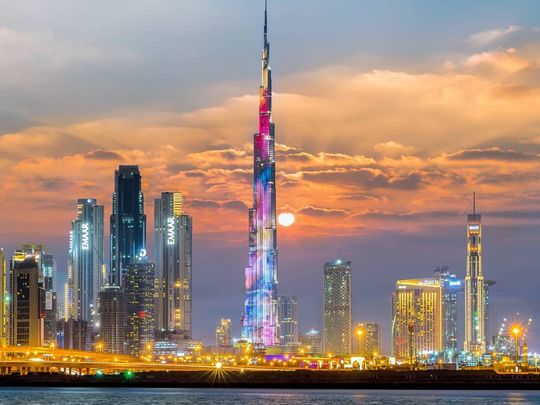To attract competent professionals, high net worth individuals, and businesspeople to invest and settle in the United Arab Emirates, the country has been steadily revising its entry and visa issuing regulations. There are various types of visas, including regular tourist visas, five-year visas that allow multiple visits to the UAE, and golden visas. The launch of a Green Visa with a five-year validity was recently announced by the UAE.

This resident visa enables the holder to sponsor themselves for a period of five years. It will go into effect on September 5, 2022. They will additionally be permitted to sponsor their partners, kids, and first-degree relatives. The family member’s visa will have the same duration and validity as the primary holder’s visa.
Foreign nationals will be able to work in the UAE under the Green Visa program without needing an employer’s sponsorship. This represents a significant departure from current practice, which calls for a potential employee to be sponsored by an employer, who then requests a work permit from the Ministry of Human Resources and Emiratization.
According to reports, expatriates make up 85% of the country’s entire population. As a result, foreign workers are looking for new visas and entrance requirements so they may easily reside in the UAE and take advantage of its high standard of living. Thus, the introduction of the Green Visa will significantly ease living and working conditions for foreign nationals in the nation.
Eligibility
Professionals with advanced degrees: This five-year residency is offered to qualified workers without the support of an employer or sponsor. According to the Ministry of Human Resources and Emiratization, the applicants should be in the first, second, or third occupational level and possess a current job contract. A bachelor’s degree or its equivalent is required as the minimum educational requirement, and the annual income cannot be less than Dh15,000.
Freelancers and self-employed people: They can apply for a freelance/self-employment permit through the Ministry of Human Resources and Emiratization, in keeping with the expanding significance of flexible work patterns. Bachelor’s degree or specialized certification is the required minimum level of education. The applicant must either show documentation of ongoing financial stability during his or her stay in the UAE, or their annual self-employment income for the previous two years should not have been less than Dh360,000 (about $98,000).
Partners/Investors: This permit has been put forth to promote NRI Investment and draw in investors who want to start or participate in commercial endeavors. This category’s validity has been raised to five years in the previous two years. Investment documentation is needed. The total invested capital will be determined if the investor (partner) has multiple licenses. It is necessary to receive the approval of the local authorities.
According to reports, the largest ethnic group in the UAE is Indian expatriates, who makeup approximately 3.5 million people (according to the International Migrant Stock 2020 published by the Population Division of the UN Department of Economic and Social Affairs (DESA)) and account for roughly 30% of the population of the nation. About 15% of the diaspora resides in the Emirate of Abu Dhabi, with the remainder dispersed among the six Northern Emirates, including Dubai. Although most of the Indian residents are employed, 10% of the Indian population comprises dependent family members. The most represented Indian state is Kerala, followed by Tamil Nadu and Andhra Pradesh. However, Indians from all the Northern States combined make up a sizeable share of the Indian community in the UAE.
Due to trade and other commercial ties between India and the various Emirates of the UAE, Indian engagement with the UAE extends back several centuries. It stands out from every other expatriate community in the UAE due to the numbers and different types of workers.
The profile of the community has changed along with the changing requirements of the nation. In the 1970s and 1980s, when blue-collar workers were most in demand, the Indian population was primarily composed of laborers up to 85–90% with a tiny fraction of professionals.
The community’s makeup altered in the 1990s as the demand for professionals to fill openings in the growing service industry rose. Today, about 35% of Indians are professionals, businesspeople, or other white-collar non-professionals, along with their families.
The Green Visa is sure to open up further opportunities in the UAE.
To ask any questions related to the rights of NRIs, PIOs, and OCIs, you can download SBNRI App from the Google Play Store or App Store. You can also use the SBNRI app for investment in stock market/ mutual funds, NRI account opening, tax filing, etc. To ask any questions, click on the button below. Also, visit our blog for more details.
FAQs
It will go into effect on September 5, 2022.
Professionals with advanced degrees, Freelancers and self-employed people, and Partners/Investors
Indian expatriates form roughly 30% of the UAE.
Kerala is the most represented Indian state in the UAE.



